Related Research Articles

Toxicology is a scientific discipline, overlapping with biology, chemistry, pharmacology, and medicine, that involves the study of the adverse effects of chemical substances on living organisms and the practice of diagnosing and treating exposures to toxins and toxicants. The relationship between dose and its effects on the exposed organism is of high significance in toxicology. Factors that influence chemical toxicity include the dosage, duration of exposure, route of exposure, species, age, sex, and environment. Toxicologists are experts on poisons and poisoning. There is a movement for evidence-based toxicology as part of the larger movement towards evidence-based practices. Toxicology is currently contributing to the field of cancer research, since some toxins can be used as drugs for killing tumor cells. One prime example of this is ribosome-inactivating proteins, tested in the treatment of leukemia.
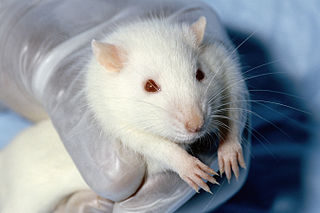
Animal testing, also known as animal experimentation, animal research, and in vivo testing, is the use of non-human animals, such as model organisms, in experiments that seek to control the variables that affect the behavior or biological system under study. This approach can be contrasted with field studies in which animals are observed in their natural environments or habitats. Experimental research with animals is usually conducted in universities, medical schools, pharmaceutical companies, defense establishments, and commercial facilities that provide animal-testing services to the industry. The focus of animal testing varies on a continuum from pure research, focusing on developing fundamental knowledge of an organism, to applied research, which may focus on answering some questions of great practical importance, such as finding a cure for a disease. Examples of applied research include testing disease treatments, breeding, defense research, and toxicology, including cosmetics testing. In education, animal testing is sometimes a component of biology or psychology courses.
The Draize test is an acute toxicity test devised in 1944 by Food and Drug Administration (FDA) toxicologists John H. Draize and Jacob M. Spines. Initially used for testing cosmetics, the procedure involves applying 0.5 mL or 0.5 g of a test substance to the eye or skin of a restrained, conscious animal, and then leaving it for set amount of time before rinsing it out and recording its effects. The animals are observed for up to 14 days for signs of erythema and edema in the skin test, and redness, swelling, discharge, ulceration, hemorrhaging, cloudiness, or blindness in the tested eye. The test subject is commonly an albino rabbit, though other species are used too, including dogs. The animals are euthanized after testing if the test renders irreversible damage to the eye or skin. Animals may be re-used for testing purposes if the product tested causes no permanent damage. Animals are typically reused after a "wash out" period during which all traces of the tested product are allowed to disperse from the test site.

In the animal rights movement, cruelty-free is a label for products or activities that do not harm or kill animals anywhere in the world. Products tested on animals or made from animals are not considered cruelty-free, since these tests are often painful and cause the suffering and death of millions of animals every year.
The Physicians Committee for Responsible Medicine (PCRM) is a non-profit research and advocacy organization based in Washington, D.C. According to Charity Navigator, the organization works for "compassionate and effective medical practice, research, and health promotion."
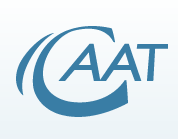
The Johns Hopkins University Center for Alternatives to Animal Testing (CAAT) has worked with scientists, since 1981, to find new methods to replace the use of laboratory animals in experiments, reduce the number of animals tested, and refine necessary tests to eliminate pain and distress. CAAT is an academic, science-based center affiliated with the Johns Hopkins Bloomberg School of Public Health.

The Lord Dowding Fund for Humane Research (LDF) – a department of the National Anti-Vivisection Society, the world's first anti-vivisection organisation – awards grants to scientists undertaking medical research which benefits humans, without the use of animals.

Michael Festing is a British research scientist best known for his interest in animal testing.
Gillian Rose Langley is a British scientist and writer who specialises in alternatives to animal testing and animal rights. She was, from 1981 until 2009, the science director of the Dr Hadwen Trust for Humane Research, a medical research charity developing non-animal research techniques. She was an anti-vivisection member of the British government's Animal Procedures Committee for eight years, and has worked as a consultant on non-animal techniques for the European Commission, and for animal protection organizations in Europe and the United States. Between 2010 and 2016 she was a consultant for Humane Society International.

The Foundation for Biomedical Research (FBR) is an American nonprofit organization, 501(c)(3), located in Washington, DC. Established in 1981, the organization is dedicated to informing the news media, teachers, and other groups about the need for lab animals in medical and scientific research. The organization, together with its partner, the National Association for Biomedical Research (NABR), argues that promoting animal research leads to improved health for both humans and animals.

Alternatives to animal testing are the development and implementation of test methods that avoid the use of live animals. There is widespread agreement that a reduction in the number of animals used and the refinement of testing to reduce suffering should be important goals for the industries involved. Two major alternatives to in vivo animal testing are in vitro cell culture techniques and in silico computer simulation; however, some claim they are not true alternatives because simulations use data from prior animal experiments and cell cultures often require animal derived products, such as serum or cells. Others say that they cannot replace animals completely as they are unlikely to ever provide enough information about the complex interactions of living systems.
Michael Balls is a British zoologist and professor emeritus of medical cell biology at the University of Nottingham. He is best known for his work on laboratory animal welfare and alternatives to animal testing.
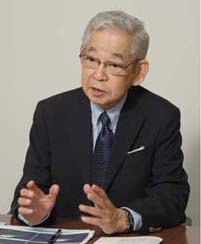
Tatsuji Nomura was a pioneer in the development of laboratory animals with the aim of assuring reproducibility of experimental results in medical research. He was Director of the Central Institute for Experimental Animals (CIEA), Japan
Rise for Animals is a national, registered 501(c)(3) nonprofit animal rights organization which aims to end nonhuman animal experimentation. It has been described as "one of the oldest and wealthiest anti-vivisection organizations in the United States".

The Three Rs (3Rs) are guiding principles for more ethical use of animals in product testing and scientific research. They were first described by W. M. S. Russell and R. L. Burch in 1959. The 3Rs are:
- Replacement:methods which avoid the use of animals in research
- Reduction: use of methods that enable researchers to minimise the number of animals necessary to obtain reliable and useful information.
- Refinement: use of methods that alleviate or minimize potential pain, suffering, distress, or lasting harm and improve welfare for the animals used.
The Universities Federation for Animal Welfare (UFAW) is an animal welfare science society. It is a UK-registered scientific and educational charity.

Directive 2010/63/EU is the European Union (EU) legislation "on the protection of animals used for scientific purposes" and is one of the most stringent ethical and welfare standards worldwide.
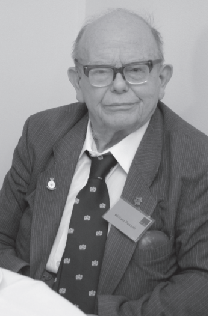
William Moy Stratton Russell, also known as Bill Russell, was a British zoologist and animal welfare worker. He was best known for writing, along with R. L. Burch (1926-1996) The Principles of Humane Experimental Technique (1959), a landmark in the humane use of animals in research, education and testing. Russell and Burch introduced the concept of the Three Rs in the scientific community and provided a blueprint for combining animal welfare considerations and quality of research.
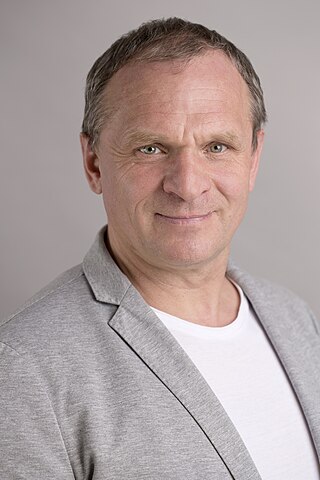
Uwe Marx is a German physician and biotechnologist, and one of the world’s leading researchers in the fields of organ-on-a-chip technology and antibody production.
Björn Ekwall was a Swedish cell toxicologist, known for his pioneering work in in vitro toxicology.
References
- 1 2 3 "259464 - THE FUND FOR THE REPLACEMENT OF ANIMALS IN MEDICAL EXPERIMENTS (F R A M E)". The Charity Commission. Retrieved 16 March 2009.
- ↑ Annett, Bill (20 September 1995). "Obituary: Dorothy Hegarty". The Independent. Retrieved 16 March 2009.[ dead link ]
- ↑ Clothier, R.H. 2007 Phototoxicity and acute toxicity studies conducted by the FRAME Alternatives Laboratory: a brief review. ATLA 35, 515–519
- ↑ Utton, Tim (22 June 2007). "Taking Animals out of Laboratory Research". University of Nottingham Public Affairs Office. Retrieved 16 March 2009.
- ↑ "Who we are". Human Relevant Science. Retrieved 23 January 2024.
- ↑ "Illuminating and Addressing Animal Methods Bias". www.pcrm.org. Retrieved 23 January 2024.
- ↑ "COLAAB-orative Effort Led by Physicians Committee Wins Lush Prize". www.pcrm.org. Retrieved 15 October 2024.
- ↑ Caritas entry